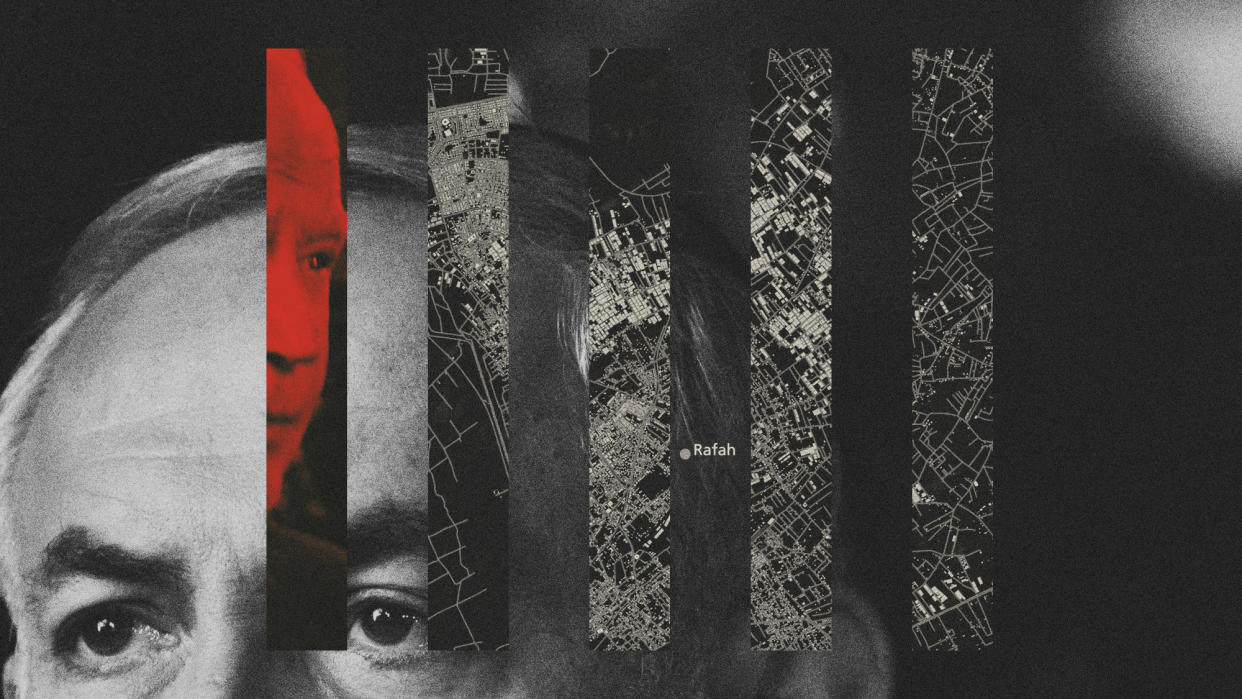Why is Israel gearing up for a Rafah offensive despite Biden's warnings?

- Oops!Something went wrong.Please try again later.
- Oops!Something went wrong.Please try again later.
As the war between Israel and Hamas passes the four-month mark, the former is continuing its major military operations in the Gaza Strip. Israel's latest effort is a planned assault on the southern city of Rafah, but the international community has been pressuring Israeli leadership against going forward with the attack.
The latest world leader to speak against the plan is President Joe Biden. Speaking at the White House on Monday alongside Jordanian King Abdullah II, Biden said that Israel's operation in Rafah "should not proceed without a credible plan — a credible plan for ensuring the safety and support of more than one million people sheltering there." Biden noted that many of the people in Rafah are refugees who have been "displaced multiple times, fleeing the violence to the north, and now they're packed into Rafah — exposed and vulnerable."
However, it doesn't appear that Israeli Prime Minister Benjamin Netanyahu is ceding to international pressure. A prior operation in Rafah to rescue a pair of Israeli hostages resulted in the deaths of at least 67 Palestinians, and Netanyahu recently told ABC News that Israel was "going to get the remaining Hamas terrorist battalions in Rafah, which is the last bastion," adding that "victory is within reach." Why does Israel appear to be revving up its engines for a ground assault despite Biden's warnings?
What did the commentators say?
Biden's words against the Rafah offensive were a "rare measure of direct criticism at Israel over its broader war," Adam Cancryn said for Politico. While the United States and Israel remain allies, "relations between the U.S. and Netanyahu have become increasingly strained," Biden "has grown more critical of Netanyahu in public, saying last week that Israel's war in Gaza has been 'over the top.'"
But is the Rafah debacle the beginning of the end for Biden's support of Israel? "I do think it relates to the relationship between the president and the prime minister," said Dennis Ross, the former Middle East envoy for the H.W. Bush and Clinton administrations, to NPR. Biden is the "only American president who ever went to Israel during a war, who immediately comes to the defense of Israel in international form" and took on "political water here for doing what he's done, stood up in many respects to a lot of international pressure to stand by Israel," Ross said.
Biden thinks he's "built a lot of political credit in Israel," said Ross, and now he's seeking "a little bit more responsiveness from Netanyahu to the things that he's asking." The White House "can stand strongly with Israel by making itself very clear in that Israel shouldn't do this."
While Biden has not called for a total cease-fire, "his willingness to stand alongside an Arab leader who did issue such a call was notable," Yasmeen Abutaleb and Matt Viser said for The Washington Post. At a time when Biden is facing heavy criticism from Arab-Americans, he "found in Abdullah a welcome ally." But even as Biden "has shown more willingness to take aim at" the Gaza war, said Abutaleb and Viser, Arab leaders in the U.S. and Middle East "have felt his public comments allowed for little criticism of the hard-hitting military campaign."
"The Israelis understand the complexity of Biden's election campaign," but despite pushback from the White House, Netanyahu and his army "do not feel that they can leave Rafah alone," Ehud Yaari, a fellow with the Washington Institute for Near East Policy, said to The Wall Street Journal.
What next?
Without joining calls for a cease-fire, Biden is working to broker a new deal that would see a six-week pause in the fighting between Israel and Hamas. During his meeting with Abdullah, Biden said that he had spoken with Netanyahu as well as the leaders of Egypt and Qatar, two countries that were instrumental in brokering the previous release of hostages held by Hamas.
But Netanyahu doesn't seem to be too keen on the idea, saying that those warning against a Rafah invasion "are basically saying lose the war." Netanyahu told ABC that Israel was working to relocate civilians away from Rafah but that the timetable to stall their offensive was running out.

